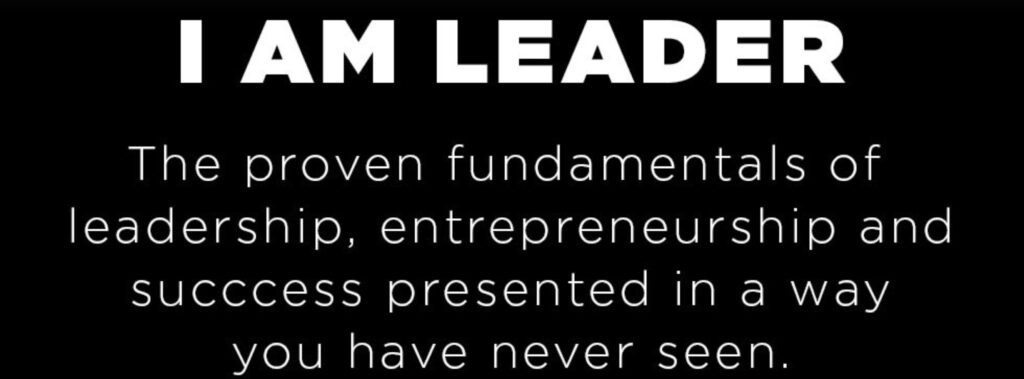Today on the show, we have a special guest, Stephen Mason, an incredible conversationalist. You’re going to want to listen to it until the very end. We will talk about the importance of respect in the workplace. Also, we’re going to answer your questions and much more, coming up on Service Drive Revolution.
Sitting in for Christian is Mia Griggs and she’s going to have lots of dad jokes for everybody. So be ready because she’s randomly just going to crack a joke when you least expect it.
Let’s talk about a couple of the things that are maybe more important than the jokes, Top Dog, our annual event where I’m going to give away my Jeep is coming up October 21st and 23rd. We have a bunch of incredible speakers. Robert Cialdini, who’s an icon in our industry, wrote the book Influence and Pre-Suasion is going to be there, he rarely ever speaks at events and we were able to convince him to do it. Additionally, we’re going to have the guy from Bar Rescue, John Taffer. I’m going to try to create some sort of scenario where he yells at Christian.
So make sure you sign up. If you’re a coaching client or on OnDemand, you’re going to get a ticket automatically. You just have to RSVP if you haven’t. We are selling tickets on ChrisCollinsInc.com.
Coming up on our OnDemand platforms is very exciting.
People have been asking about this because we teased it. Mia Griggs has created BDC training that’s incredible! For those who are curious about Mia’s BDC training, we recommend you get on OnDemand ASAP!
Before we move on into the importance of respect in the workplace… We’ll be answering questions because we have some backlogged in the queue.
Question #1:
My name is Kevin and I am a 57 year old Field Service Technician for a Copier/IT company. I’ve been doing this for over 30 years. I have good rapport with my customers and my customer service skills are there. The Service Advisor doesn’t need to know how to fix what’s wrong with a vehicle, that is the Technician’s job, which I can totally understand. But with my background in customer service and my ability to communicate with people, I’m just wondering how you feel the jump into the Service Advisor world would be for someone in my situation, but my question is,
“At my age, how do you feel about going into that line of work?”
In response, I told Kevin that a couple of things come to mind instantly for me.
The first one I would say is when you’re going out to clients fixing printers, you’re usually for the most part dealing with one customer at a time. Although being a Service Advisor could appear like you’re dealing with one customer at a time, you’re not, you’re dealing with all the customers you wrote before, the ones that are in the shop, the ones you’re writing now, and the ones that want to come in and are on the phone. Issuing the importance of respect in the workplace to others will be beneficial for the whole team.
There’s a lot more going on and it’s harder to, you know, just be in the moment with the customer you are with. That would be an adjustment period, it’s just different from the usual service jobs because you’ll have to consider every single specific detail when working with customers.
I would also like to add that I don’t think your age of 57 has any relevance in your potential to become a Service Advisor whatsoever. I’m going to be 50 and I don’t think that 7 years from now, I will have a hard time writing Service, personally. You’re obviously a fan of the show and listen, that’s the hardest part for somebody that’s technical, to turn off that switch of fixing, instead of fact-finding, you’re more of a private detective investigator as a Service Advisor and documenting that information. Respect in the workplace is also a thing that comes up when figuring out how things are working for us.
Currently, your customers are telling you what’s wrong and you’re instantly fixing it and what you’re going to need to do is take that part off and retrain your mind to just document, investigate, ask questions, verify things like a noise before you give it to the Technicians. Many times, being a Service Advisor can be very rewarding and you’re helping a lot of people if you have the right mindset. So I wouldn’t advise against it.
Now we have a guest coming up, Mr. Stephen Mason. He will enlighten us with his story about learning the importance of respect in the workplace.
He is the director of operations at Keifer Automotive Group and he had a post that caught our attention called ‘Learn to Love Your ‘Lauras’, which was very heartfelt, vulnerable, and after you read it you’re gonna love him. He’s a great guest and you want to stay till the end to grasp the inner workings of his mind.
Stephen Mason came to our attention through our spiderwebs of networks on social media, for everything car related, a story that Stephen Mason posted, ‘Learn to Love Your Laura’s’ caught our attention.
We want Stephen to start off by telling the story and then we’ll unpack it and talk about it because it’s a great story. Stephen goes off to tell us the story, he says
“The young lady’s name is Laura Roy. I was a floor manager and what that biller did was serve as the middleman for me when I contacted customers, I made sure all their documents were together and I took it into the accounting office. Before it goes out to the bank, Laura’s job was to make sure that it had everything in there that I said it was now, it said was in there, excuse me.
And on a consistent basis, I would turn a deal into Laura and she would bring it back to me because it was missing things. One day I just couldn’t take it anymore because I was so tired of getting my deals returned back to me. It was just constantly Laura bringing me deals until one day, I just lost my cool and she gave me a deal back and I took the deal and FLUNG it against the wall and all the papers came out.”
Laura chose to close the door and slow me down a little bit. She stood me up and said,
“Hey, listen, there’s a lot of things that are going to go on in this dealership, but you will not disrespect me or my position.”
And at the time I didn’t take it overly seriously. I mean, I took it seriously that she was not backing down from me because all of a sudden I realized that I had the wrong chick, she was tough and she was great at her job better than anybody I’ve ever seen. Learning respect in the workplace is something we need in order to work better with one another.
Months after this incident, my wife calls me from the hospital and tells me that she was there getting checked out by the doctors. She was 25 weeks pregnant and her stomach hurt a little bit and the doctors proceeded to send her home. After we got off the phone, my wife called right back and said her water just broke.
My wife’s at the hospital, her water breaks, I’ve got another son at the time, who’s scheduled to get off a bus. There’s nobody there to get him, I’m on my way to the hospital. I’m thinking to myself, “how do I get to the hospital and get my son when he gets off the bus.”
I called Laura up and she took the rest of the day off of work, went and stayed with my son, made sure my son got a bath, made sure my son got to school, and on the bus the next day. This really speaks volumes for Laura because people start showcasing their true self when you allow them to and it was one of the more valuable lessons of my entire life.
If y’all were to sit there and ask me who has been instrumental in me getting to where I’m at, I would have to say that Laura’s in the top three.
I wanted to know more in detail about the importance of respect in the workplace.
Now that he’s general manager, if he had somebody in finance with a problem getting all the steps in their paperwork. How would you react now?
Stephen responded to my question and told me,
“This is super important, what I did to Laura, should have gotten me fired. That type of behavior was somewhat allowed and that’s unfortunate, but I can tell you that in my story it wouldn’t exist. When I say it’s a twofold answer, you know, first thing I have to do is identify why as a finance manager who can’t get his paperwork together because the job is not making money. The job is protecting the store and the job as our last line of defense. What are we doing to make sure that we are securing the loan and making sure that we’re perfecting all of our paperwork?
Additionally, if we can’t take direction from somebody who’s ultimately trying to do the same without losing our cool, then I have to ask myself, “Are you the right person for the position?” I can tell you in my store that it would be pretty severe if it happened again. When I say severe, that job from a finance manager, most finance managers make a pretty good living in the United States of America, it would be an immediate three-day suspension, immediate, and it would be a serious talk when they came back.
It would not be a 1, 2, 3 strike offense nowadays, it would be if this ever happens again, you’re no longer employed here.
If you do what I’m saying, by addressing the person who was out of line and addressing the person who was violated, at that point, you’re out in front of it. What we do a lot of times is approach the person who violated someone and we slap them on the wrist and tell them don’t do that again without documenting anything or putting it on paper. Additionally, we don’t really address the person that was violated other than having the person who disrespected them say, make sure you tell them that you apologized.”
I asked Stephen this question next, “What do you say to the person who was violated?”
What Stephen would do is have a very serious conversation with them in my office and that conversation is along the lines of Listening and not to turn this into an HR meeting, but he always has another person present and that person keeps them calm by asking them, “Hey, are you okay? What’s going on in your head?”, because he will not accept this type of behavior, he listens to them and that’s really what he does. Stephen talks about the importance of respect in the workplace when he explained who was violated.
What happens sometimes with those sorts of behaviors that are aggressive and emotionally damaging, is not productive or fair for anybody when it happens to people. If these actions are allowed, then you get more of these outcomes and it perpetuates itself.
I handle the person on the receiving end of that, the same as I would handle an upset customer, in the sense that I say something to the effect of, “I am so sorry this happened, we’re gonna, we’re gonna use this to learn and get better in no way, is it acceptable?” We’re gonna make a big deal out of it and when you say that to a customer or employee, then they understand that this isn’t something we’re going to pair it with. This is it because that’s a concern, on top of them understanding that it isn’t right and trying to help them through that.
Mia Griggs builds upon this topic telling us,
“This just shows the difference between either a Manager or an HR department that is apologizing because they truly are sorry and they want to fix the situation. They actually care about the employees that got hurt or that got disrespected versus HR or a Manager. That’s just saying sorry for legality purposes or just because they have to, in order to cover their own, but like actually showing true empathy to that employer or to that employee I think is what makes such a huge difference between the two, actually caring and wanting to make sure that they’re genuinely okay is so important and I don’t see that a lot in the Automotive Industry.”
Stephen comes back in and tells us that the biggest problem we typically have is just lack of communication in our Automotive Industry. They don’t feel like they’re being communicated with and I responded by saying that especially in the Automotive Industry, the thing that’s so spot on is, it’s mostly about communication. What we miss is communication and a lot of times the customers escalate through the process because the communication has been one way: it’s been an advisor or a salesperson, telling them how they’re wrong, telling them how it is, or telling them the policy is this, and that’s not communication. That’s a dictatorship in a sense.
When you don’t understand the importance of respect in the workplace, it’s harder to get along with people. When I say we’re going to make a big deal about this, it has that human element of getting somebody in trouble and that does bring things back to reality a little bit because even the craziest narcissist understands that you know you’re affecting other people in a weird way in the Automotive Industry.
The thing that Stephen Mason did that caught us about your story is how most of the time with these sort of situations that you’re describing here, we don’t talk about them. I believe that this is a huge tribute to his character and as a person. Stephen is putting this online and being vulnerable and saying things like,
“Hey, I was a jerk and this is what I learned from it” and making somebody else the hero of the story is really beautiful.”
He responded to by talking about his reasonings for posting this story on LinkedIn and said,
“I did not post a story for you to feel this way, I posted the story to talk about how much I’ve grown, how I learned to appreciate people like Laura, and how that would never happen again. I certainly understand your animosity towards me, just please understand that this was a long time ago, and that is in no way a representation of me now. People got pretty upset and you are correct. The entire focus of my story will always be that I absolutely should have been fired and I have so much respect now for Laura that they would probably never understand.”
I comforted Stephen’s response by telling him that people are so quick to judge. It’s not a surprise to me that he got that sort of feedback.
I saw his story as being vulnerable and completely different, we’re in an environment where you can’t share those sorts of things where we were wrong because everybody’s so polarized. We need to understand that we’re always learning, making mistakes, and trying to understand is going to get us way further than judging. Many things can come by understanding the importance of respect in the workplace.
He went in depth with his ideas about the importance of respect in the workplace. I asked him,
“Do you think we have a long way to go in the Automotive Industry? Or do you think we’re getting better?
Stephen kept his answers as honest as possible with his experiences inside the Automotive Industry, he tells us,
“I think that we have a long way to go and that’s just me being transparent with you in regards to what I see. If we’re going to have a work environment, then we have to learn to treat everybody the same and every cup stands on its own bottom. I don’t care if they’re male or female. If they can perform to a higher level, then I’m going to make sure that I help them get to a higher level. If they can’t perform to a higher level, I’m going to just let them go away. I have a rule of thumb and I think y’all will appreciate it. The only thing worse than letting good people leave is letting bad ones stay.”
On that note, we want to thank you Stephen so much for coming on the show. We wish him the best and maybe we’ll do this again. Keep posting good stuff Stephen! He was able to shed light on the importance of respect in the workplace and now we see each respective side.
Don’t forget to subscribe and call us at (833) 3-ASK-SDR if you have a question.
For special deals on our books and training, head over to HERE and I’ll see you next time on Service Drive Revolution!
Related Blogs/Podcasts:
The Importance of Building Real Customer Relationships
Motivating Employees In The Workplace With Michelle Elrod
Poison Words That Can Sabotage Your Sales













